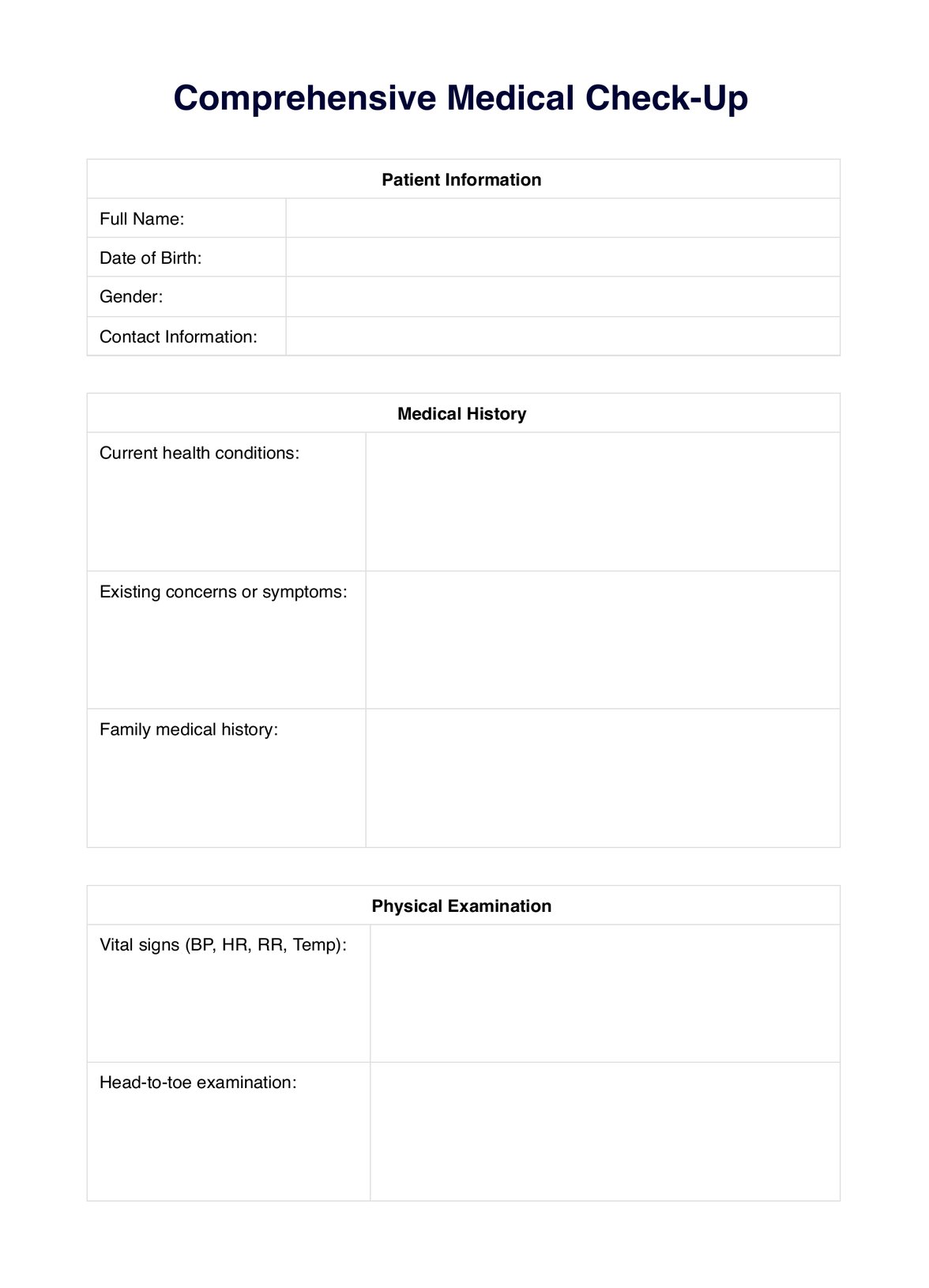The frequency of check-ups varies based on age, health history, and risk factors. Generally, adults are advised to have annual check-ups, while younger individuals may opt for biennial assessments.

Comprehensive Medical Check Up
Discover the importance of comprehensive medical check-ups for proactive health management. Learn about the tests, including their frequency, and download the template!
Comprehensive Medical Check Up Template
Commonly asked questions
Common tests encompass blood tests (CBC, cholesterol), screenings for conditions like diabetes and cancer, and assessments of vital signs. The tests may vary based on age, gender, and health history.
While it can identify many health issues, no check-up guarantees the detection of every possible problem. It is a proactive approach, aiding in early detection and prevention, but ongoing healthcare practices are essential for holistic well-being.
EHR and practice management software
Get started for free
*No credit card required
Free
$0/usd
Unlimited clients
Telehealth
1GB of storage
Client portal text
Automated billing and online payments











